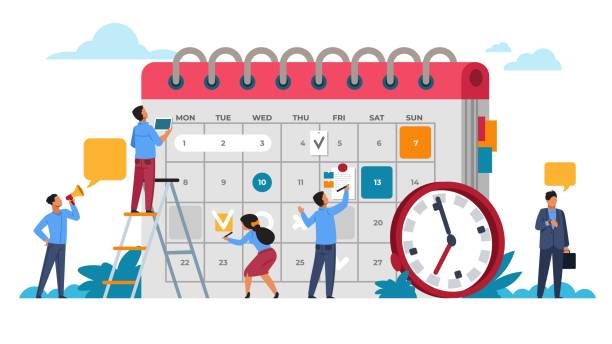“Mastering Time: Workshops for Student Time Management”
Introduction
Effective time management is a critical skill for students, enabling them to balance academic responsibilities, extracurricular activities, and personal commitments while achieving their academic goals. Time management workshops offer valuable strategies, tools, and techniques to help students optimize their time, enhance productivity, and reduce stress. In this guide, we’ll explore the importance of time management workshops for students and outline key topics and strategies covered in these workshops.
1. Understanding the Importance of Time Management
Time management workshops provide students with essential skills and knowledge to:
- Prioritize tasks and allocate time effectively to meet academic deadlines and goals.
- Reduce procrastination and increase motivation by breaking tasks into manageable chunks and setting achievable objectives.
- Balance academic, extracurricular, and personal commitments to maintain overall well-being and prevent burnout.
- Improve productivity and efficiency by identifying time-wasting activities and implementing strategies to overcome distractions.
- Enhance self-discipline and self-regulation to develop consistent study habits and routines.
2. Key Topics Covered in Time Management Workshops
Time management workshops typically cover a range of topics tailored to the specific needs and challenges faced by students. Some key topics include:
- Goal Setting: Setting SMART (Specific, Measurable, Achievable, Relevant, Time-bound) goals to clarify objectives and motivate action.
- Prioritization Techniques: Using methods such as the Eisenhower Matrix or ABC prioritization to categorize tasks based on urgency and importance.
- Time Blocking and Scheduling: Allocating specific blocks of time for different activities, such as studying, attending classes, and relaxation, to create a structured daily or weekly schedule.
- Task Management Tools: Exploring digital tools and apps such as calendars, to-do lists, and task managers to organize, track, and manage assignments and deadlines.
- Procrastination Management: Identifying common triggers and behaviors associated with procrastination and implementing strategies to overcome procrastination, such as the Pomodoro Technique or the Two-Minute Rule.
- Effective Study Techniques: Learning study strategies such as active learning, spaced repetition, and retrieval practice to maximize learning efficiency and retention.
- Stress Management: Developing coping strategies and relaxation techniques to manage stress, maintain well-being, and prevent academic burnout.
3. Interactive Learning Activities
Time management workshops often include interactive learning activities and exercises to reinforce concepts and facilitate skill development. Some examples of interactive activities include:
- Time Audit: Analyzing how students currently spend their time to identify areas for improvement and potential time-saving opportunities.
- Time Management Matrix: Using a matrix to categorize tasks based on urgency and importance and develop action plans for addressing high-priority tasks.
- Goal-Setting Exercise: Guided exercises to help students set specific, measurable, achievable, relevant, and time-bound goals and create action plans for achieving them.
- Task Prioritization Challenge: Group activities to practice prioritizing tasks and making decisions about how to allocate time and resources effectively.
4. Practical Tips and Strategies
Time management workshops provide students with practical tips and strategies they can implement immediately to improve their time management skills. Some practical tips include:
- Breaking tasks into smaller, more manageable steps to avoid feeling overwhelmed.
- Setting deadlines and creating accountability mechanisms to stay on track.
- Limiting distractions by turning off notifications, setting boundaries, and creating a conducive study environment.
- Practicing self-care and prioritizing activities that promote physical, mental, and emotional well-being.
- Reflecting on successes and challenges regularly and adjusting strategies as needed to maintain progress and momentum.
Conclusion
Time management workshops offer students invaluable resources and support to develop essential time management skills and strategies for academic success. By mastering time management techniques, students can optimize their productivity, reduce stress, and achieve their academic and personal goals more effectively. Whether attending workshops in person or participating in online sessions, students can benefit greatly from investing time and effort in honing their time management skills and creating a foundation for lifelong success.
